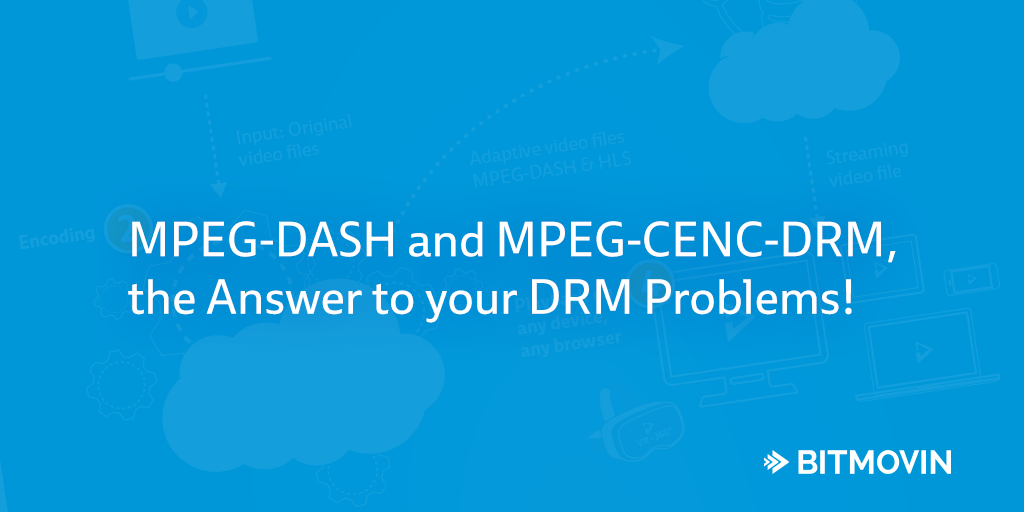On September 23, 2013 Google stated that starting January 2014 it would block NPAPI plugins, with a few exceptions, such as Microsoft Silverlight. At the time the company also announced the complete removal of NPAPI “before the end of 2014, but the exact timing will depend on usage and user feedback” Chromium Blog. That announcement may not sound very spectacular in itself, but this has potentially very significant implications for premium streaming/content providers as the end of 2014 is approaching fast.
Here’s a brief analysis of the consequences of Google’s decision and what it means to premium streaming/content providers:
A lot of plugins, including Microsoft Silverlight, use this API. Google’s decision means these plugins will not be available (or at least not supported) anymore on the Chrome platform. This is a huge problem for premium streaming video providers, which are required to use studio-approved DRM systems to distribute certain content over the Web. Today, the system of choice for the majority of those providers is Microsoft’s Playready DRM, which only works via Silverlight across various browsers, including Chrome (IE is different, as usual).
What other platforms are affected? What about Flash, for example. Here Chrome has its own Flash implementation called Pepperflash which is default in Chrome, but not based on NPAPI. So things should continue to work as normal.
Of course, it’s not possible to throw out Silverlight and other NPAPI-based plugins from one day to another, so, to avoid disruption to users, Chrome will temporarily whitelist the most popular NPAPI plug-ins that are not already blocked for security reasons, and this includes Silverlight.
And what’s Microsoft’s answer? Although Microsoft supports the current Silverlight 5 version until 2021, they also state the 2021 date is contingent on “the support lifecycle of the underlying browsers, whichever is shorter” . That means that it is likely that Microsoft will end support for Silverlight 5 on Chrome the moment Google pulls its support for NPAPI. Will there be an updated Silverlight plugin for Chrome which is not based on NPAPI? And when? But it’s hard to predict what Microsoft’s response will be moving forward.
What are the reasons for dropping Silverlight?
Google claims that they want to provide a faster, safer and more capable browser, and that’s not possible with NPAPI. I personally do not believe that – at least not all of it!
Google currently positions its Widevine DRM – to be precise its new Widevine Modular DRM which is also MPEG-CENC compliant – on the market, as a competitor to Microsoft’s Playready DRM, which has a leading market position at the moment. Now, with the lacking Silverlight support in Chrome, premium content providers have to switch to other technologies. And what’s the alternative?
W3C recently ratified the HTML5 support for MPEG-DASH via the Media Source Extensions (MSE) as well as the Encrypted Media Extensions (EME), which are both implemented and available in Chrome. However, only Widevine is supported as DRM system in Chrome.
What are the implications for premium video services?
There is only one real alternative for premium content on Chrome: HTML5 MSE/EME with Widevine DRM. But that does not mean that everybody has to generate separate Widevine protected content just for Chrome. Using MPEG-CENC it is possible to support separate DRM systems with one version of protected content. Thus, it is possible to use various systems such as Widevine, Playready, Marlin, Adobe Access, etc. in parallel with only one version of the content. Quite cool I would say!
As the HTML5 EME is based on the HTML MSE for MPEG-DASH based content, this is also a huge push for MPEG-DASH as the technology of choice for online streaming. Together with MPEG-CENC, content providers finally get rid of vendor lock-in on the streaming, DRM or CDN side.
Who can help?
Bitmovin of course! Our HTML5 Player as well as our cloud-based encoding system supports MPEG-DASH and MPEG-CENC Clearkey for HTML5 and Flash. Sign up and test it yourself for with a free account.
So if you are hosting a premium video service, striving for a solution to provide premium and protected content to Chrome in the future as well, contact us!
Cheers,
Stefan
CEO, Bitmovin
Follow Stefan Lederer on Twitter: @slederer
Follow bitmovin on Twitter: @bitmovin




